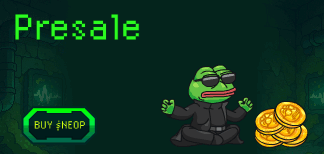UBS Asset Management recently successfully launched the pilot of an Ethereum-based money market fund as part of an initiative called Project Guardian. This is the first in a series of real-time pilots that UBS plans to launch. See below for full details.
Summary
UBS joins the cryptocurrency revolution: Ethereum at the service of the bank
As expected, UBS Asset Management, a leading global asset management firm, recently inaugurated its first “live pilot project” of a money market fund tokenized on the Ethereum blockchain.
This pilot allows UBS Asset Management to conduct a series of tests of the fund’s activities directly on the blockchain, including processes such as subscriptions and redemptions.
For this project, UBS used its in-house tokenization service, known as UBS Tokenize.
Thomas Kaegi, Head of UBS Asset Management for Singapore and Southeast Asia, emphasised that this initiative represents a significant step forward in the understanding of fund tokenization.
UBS, with its expertise in tokenizing fixed income and structured products, is committed to working with traditional financial institutions and fintech providers to improve market liquidity and access to financial markets for clients.
In addition, UBS has long been at the forefront of research into and use of blockchain technology.
For example, it launched the first digital bond listed and regulated on blockchain and traditional exchanges in November 2022, issued a $50 million tokenized fixed-rate bond in December 2022, and issued 200 million yuan of fully digital structured bonds on behalf of a third-party issuer in June 2023.
Importance of UBS’s pilot for Project Guardian
UBS’s latest tokenized money market fund pilot is a key component of Project Guardian, a collaborative industry initiative led by the Monetary Authority of Singapore (MAS).
The fund has been configured as a variable capital company (VCC), a regulatory innovation that applies to a wide range of investment funds operating in Singapore.
Following the successful launch of the initial pilot transactions, UBS Asset Management intends to explore further practical scenarios under Project Guardian.
This will involve broader collaboration with a variety of partners and the analysis of different investment strategies. As we know, the concept of tokenization, which allows resources to be transferred from the real world to the digital world, is gaining popularity.
As reported by The Block Research in its recent report, tokenization enables the monitoring, trading, programmability and management of digital assets and has revolutionary potential to transform the global financial landscape.
More news for Ethereum: Bitwise Launches ETFs on CME Futures
Recently, Bitwise, one of the leading crypto index fund managers in the US, announced the launch of two new Ethereum-related ETFs: the Bitwise Ethereum Strategy ETF (AETH) and the Bitwise Bitcoin and Ether Equal Weight Strategy ETF (BTOP).
These Ethereum-based ETFs will be based on CME futures, offering clients a way to participate in Ethereum-related opportunities without having to invest directly in the underlying digital asset.
The fact that Bitwise has launched these futures ETFs highlights the growing demand from institutional investors. The Bank of New York Mellon will act as custodian for both Ethereum funds.
Hunter Horsley, CEO of Bitwise, commented:
“The two funds continue to expand our leading suite of crypto products, offering investors a broad range of options to access opportunities in the sector.”
Furthermore, the decentralised financial ecosystem on Ethereum has experienced explosive growth, with a total locked-in value of over $21 billion, suggesting that the cryptocurrency market has growth prospects despite the recent bearish period.
Indeed, Horsley added:
“Ethereum has become the leading operating system for cryptocurrencies, with blue-chip companies such as Nike, Starbucks, Adidas, Pepsi, PayPal, JPMorgan, and many others building and using applications on Ethereum. AETH and BTOP allow investors to participate in this growth with confidence through regulated ETFs.”


